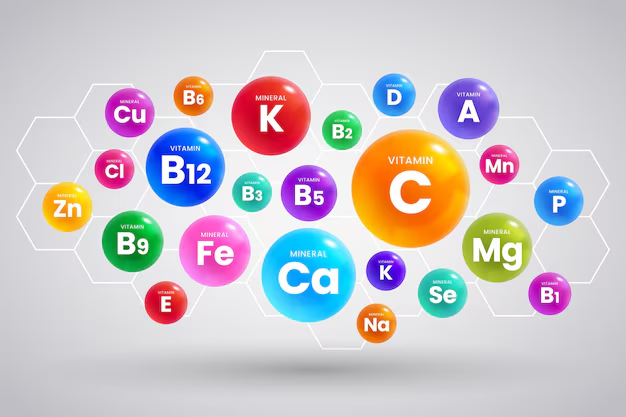Vitamin Water has become a popular drink for those seeking hydration with added benefits. It’s marketed as a healthier option compared to sugary sodas, offering a mix of vitamins and minerals in every bottle. But one common question often arises: does Vitamin Water have caffeine?
This curiosity stems from people being more conscious about caffeine in their daily diets. Whether it’s for health reasons or to avoid unexpected energy boosts, understanding what’s in your beverage is essential. This article dives into Vitamin Water’s caffeine content, variations, and nutritional profile to clear up any confusion.
Does Vitamin Water Contain Caffeine?
Vitamin Water comes in various flavors and formulations. Most of them are caffeine-free, but certain products include caffeine as an ingredient. Let’s break it down:
- Regular Vitamin Water: These are the standard versions, primarily made with water, vitamins, minerals, and sometimes sugar or sweeteners. These varieties do not contain caffeine.
- Vitamin Water Energy: This is a specific line within the Vitamin Water brand that does contain caffeine. It’s designed for people looking for a mild energy boost alongside hydration.
The caffeine content in Vitamin Water Energy is usually comparable to a small cup of coffee, around 50–75 milligrams per bottle. This makes it a viable alternative to coffee or energy drinks for those seeking a lighter jolt of energy.
If you’re unsure about whether your Vitamin Water contains caffeine, always check the label. The ingredients list and nutritional facts will clearly state if caffeine is present.
Variations in Vitamin Water and Their Caffeine Content
Vitamin Water can be divided into two main categories: caffeinated and non-caffeinated. Let’s explore these variations in detail.
Caffeinated Options:
- Vitamin Water Energy: As mentioned earlier, this line contains caffeine. It’s targeted at those needing an energy boost while staying hydrated.
- Key Features:
- Caffeine content per bottle ranges between 50–75 milligrams.
- Comes in flavors like Tropical Citrus and Berry Blast.
- Includes additional B vitamins for energy metabolism.
Non-Caffeinated Options:
- Regular Vitamin Water: These are the standard drinks without caffeine.
- Key Features:
- A mix of vitamins like C, B, and E.
- Often sweetened with sugar or natural sweeteners.
- Designed for hydration without any stimulant effect.
Key Differences Between Regular Vitamin Water and Vitamin Water Energy:
- Purpose: Regular Vitamin Water is for hydration and vitamin supplementation. Vitamin Water Energy adds a functional boost through caffeine.
- Ingredients: The Energy line includes caffeine and higher levels of B vitamins, whereas the regular line does not.
Related to Read: Is Lemonade Good for You?: A Detailed Guide
Why Do Some Vitamin Water Products Contain Caffeine?
Caffeine is added to some Vitamin Water products for specific reasons. It isn’t there by accident—it’s a deliberate choice by the manufacturers.

Boosting Energy and Focus
Caffeine is a natural stimulant. It increases alertness and focus by blocking adenosine, a chemical in the brain that promotes relaxation. By adding caffeine to Vitamin Water Energy, the drink provides a dual benefit: hydration and mental clarity. This makes it an attractive option for busy individuals.
Target Demographics
Caffeinated Vitamin Water appeals to:
- Students: For staying alert during long study sessions.
- Professionals: To maintain focus throughout the workday.
- Fitness Enthusiasts: As a pre-workout hydration option.
The inclusion of caffeine allows Vitamin Water to compete with other energy drinks while maintaining a healthier image.
Nutritional Profile of Vitamin Water
When choosing Vitamin Water, understanding its nutritional content is important. Let’s look at what’s inside.
Calories and Sugar Content
- Regular Vitamin Water: Contains 100–120 calories per bottle, mostly from added sugars. This can be a concern for those monitoring their sugar intake.
- Sugar-Free Versions: Use artificial sweeteners like stevia or erythritol. These have zero calories but maintain the drink’s sweet taste.
Vitamins and Minerals
Vitamin Water is fortified with essential vitamins and minerals:
- Vitamin C: Boosts immunity.
- B Vitamins (B3, B5, B6, B12): Aid in energy production and metabolism.
- Electrolytes: Help with hydration, especially post-exercise.
Comparison Between Regular and Sugar-Free Versions
- Regular Versions: Higher in calories due to sugar but more widely available.
- Sugar-Free Versions: A better option for those watching their calorie intake or managing conditions like diabetes.
When comparing Vitamin Water to other drinks, it’s essential to balance its benefits with your dietary needs. Some versions may provide hydration and nutrients but can be high in sugar or calories.
Is Caffeinated Vitamin Water Safe?
Caffeinated Vitamin Water is generally safe for most people when consumed in moderation. However, understanding how it fits into your daily caffeine intake is essential for maintaining good health.
Recommended Daily Caffeine Intake
The FDA suggests that up to 400 milligrams of caffeine per day is safe for most adults. This is equivalent to about four 8-ounce cups of coffee. A single bottle of Vitamin Water Energy contains 50–75 milligrams of caffeine, which is well within the safe range for most individuals. However, if you consume other caffeinated beverages throughout the day, it’s important to monitor your total intake.
Potential Side Effects of Caffeine
Excessive caffeine consumption can lead to unwanted side effects such as:
- Jitters: Feeling shaky or anxious.
- Heart Palpitations: An irregular or rapid heartbeat.
- Insomnia: Difficulty falling or staying asleep.
- Digestive Issues: Stomach upset or acid reflux.
Certain individuals should be cautious about consuming caffeinated Vitamin Water, including:
- Pregnant Women: Caffeine intake should be limited to less than 200 milligrams per day.
- Children and Adolescents: Caffeine is not recommended for younger age groups.
- People with Sensitivities: Those prone to anxiety or heart issues may need to avoid caffeine.
Caffeinated Vitamin Water is best consumed early in the day to avoid disrupting sleep patterns. Always listen to your body’s response to caffeine and adjust accordingly.
Health Benefits of Vitamin Water
Vitamin Water, whether caffeinated or not, offers a range of health benefits. Its combination of hydration, vitamins, and minerals can support overall well-being.

Hydration and Electrolyte Replenishment
Staying hydrated is vital for all bodily functions. Vitamin Water provides an easy way to replenish fluids and electrolytes, especially after exercise. Some formulations include essential electrolytes like potassium and magnesium, which help maintain fluid balance and muscle function.
Benefits of Vitamins in Vitamin Water
- Vitamin C: Known for its immune-boosting properties, Vitamin C also acts as an antioxidant, helping to protect cells from damage.
- B Vitamins: Found in many Vitamin Water varieties, B vitamins (like B6 and B12) play a key role in energy production and brain function.
These benefits make Vitamin Water a convenient choice for those looking to combine hydration with added nutritional support.
Related to Read: Does Chamomile Tea Have Caffeine?
Caffeine-Free Alternatives
For individuals looking to avoid caffeine, there are plenty of alternatives to caffeinated Vitamin Water. These options cater to a wide range of preferences and health needs.
Popular Caffeine-Free Options
- Regular Vitamin Water: Most standard varieties are caffeine-free, focusing on hydration and vitamins without any stimulants.
- Electrolyte Drinks: Brands like Pedialyte or coconut water provide hydration and electrolytes without caffeine.
- Flavored Water: Options like LaCroix or Hint Water offer subtle flavors without caffeine or added sugars.
How to Identify Caffeine-Free Vitamin Water?
Always check the label to determine if the drink contains caffeine. Look for:
- Ingredient List: Caffeine will be explicitly mentioned if present.
- Packaging Labels: Products like “Vitamin Water Energy” will typically indicate caffeine content.
By selecting caffeine-free alternatives, you can enjoy the benefits of Vitamin Water without worrying about stimulant-related effects.
Tips for Choosing the Right Vitamin Water
Selecting the right Vitamin Water for your needs involves a few key considerations. Here’s how to make an informed choice.
Check the Label for Caffeine Content
Always inspect the ingredients and nutritional facts to determine whether the product contains caffeine. This step is crucial if you’re sensitive to caffeine or trying to limit your intake.
Review Nutritional Information
Consider the sugar and calorie content. Some Vitamin Water varieties are high in sugar, which may not align with certain health goals like weight management or managing blood sugar levels. Sugar-free options are available and may be a better fit for some individuals.
Align with Your Health Goals
- For Hydration: Choose Vitamin Water with added electrolytes.
- For Energy: Select caffeinated options like Vitamin Water Energy.
- For General Nutrition: Pick varieties rich in vitamins C and B.
Consider Your Lifestyle Needs
Active individuals may benefit from Vitamin Water with electrolytes, while those needing a quick energy boost can opt for caffeinated options. If you prefer to avoid added sugar, look for sugar-free formulations.
Making the right choice ensures you maximize the benefits of Vitamin Water while keeping your health and preferences in mind.
FAQs
Does Vitamin Water have caffeine in all flavors?
Not all Vitamin Water flavors contain caffeine. Regular Vitamin Water products are caffeine-free, but some versions, like Vitamin Water Energy, are specifically formulated with caffeine for an energy boost. Always check the label to confirm.
How much caffeine is in Vitamin Water Energy?
Vitamin Water Energy contains approximately 50-75 mg of caffeine per serving, depending on the specific product. This amount is moderate compared to a cup of coffee but enough to provide a gentle energy boost.
Is Vitamin Water with caffeine safe for kids?
Caffeinated Vitamin Water is not recommended for children due to its caffeine content. Children are more sensitive to caffeine, which can impact their sleep, focus, and overall health. Opt for caffeine-free alternatives instead.
Are there sugar-free Vitamin Water options with caffeine?
Yes, some Vitamin Water Energy products offer sugar-free options sweetened with alternative ingredients like stevia. These are suitable for those looking to reduce calorie intake while enjoying a caffeinated drink.
Conclusion
Vitamin Water offers a versatile range of beverages for hydration and nutrition. While most varieties are caffeine-free, products like Vitamin Water Energy provide a mild caffeine boost for those who need it. Understanding these differences helps you make informed choices based on your lifestyle and preferences.
Whether you’re sipping on it for the vitamins, hydration, or the occasional energy kick, always check the label. This ensures you know exactly what you’re consuming. So, next time you reach for a bottle, you’ll feel confident about what’s inside.

